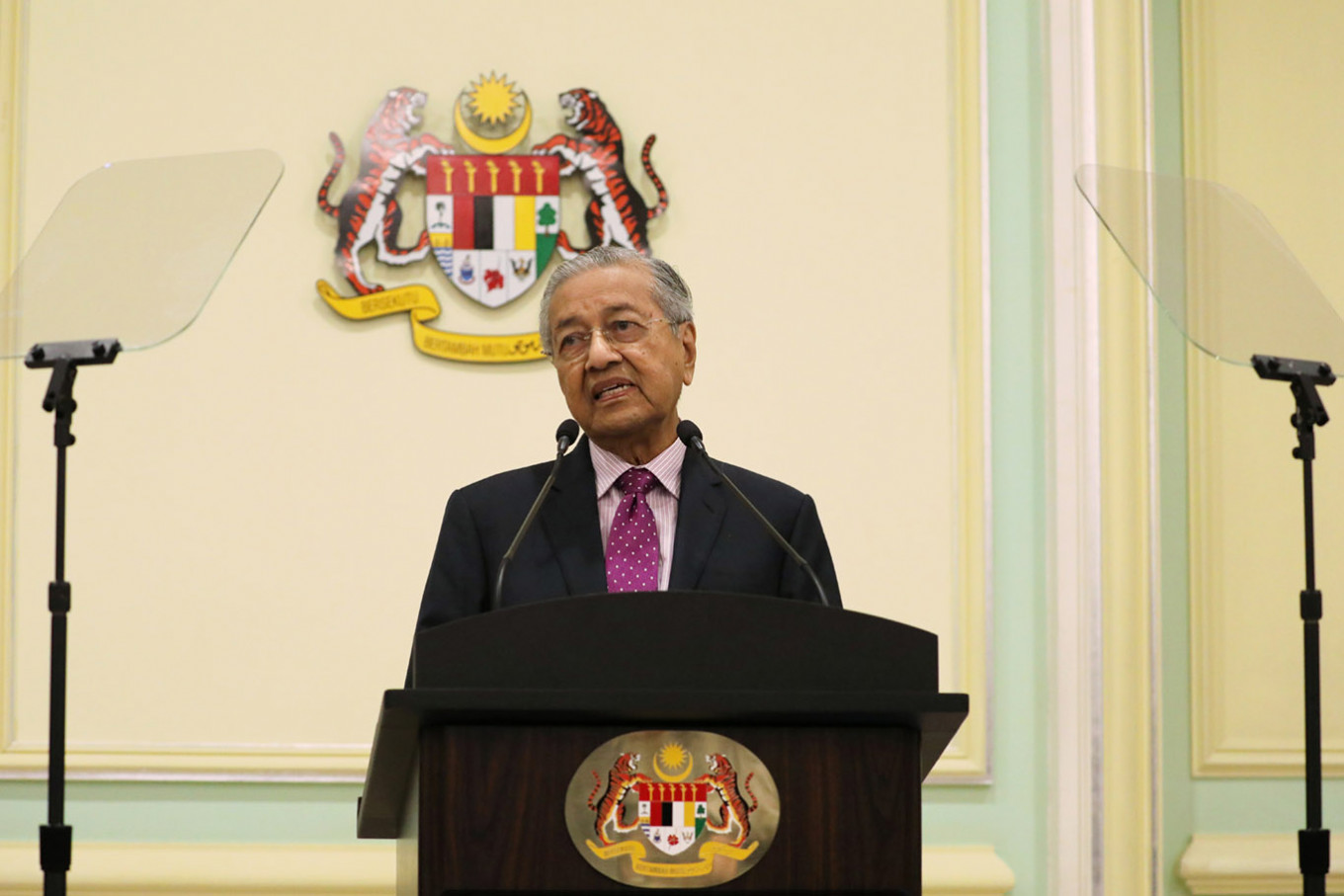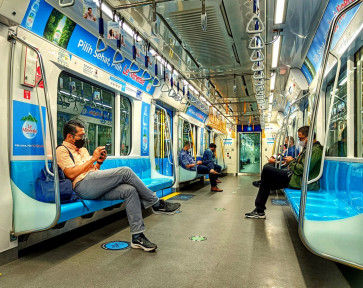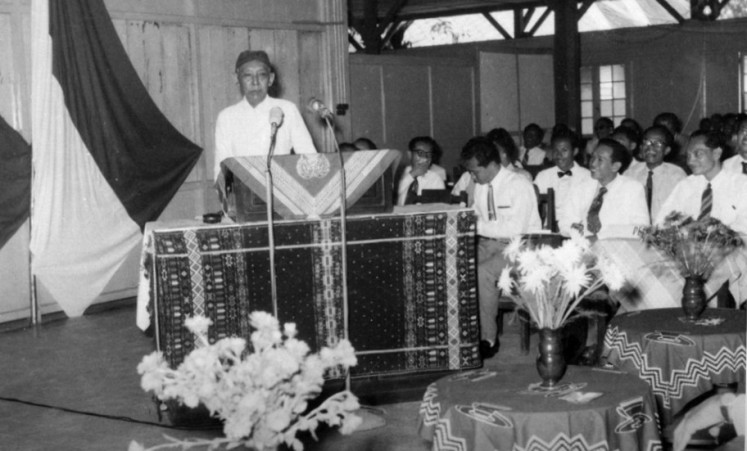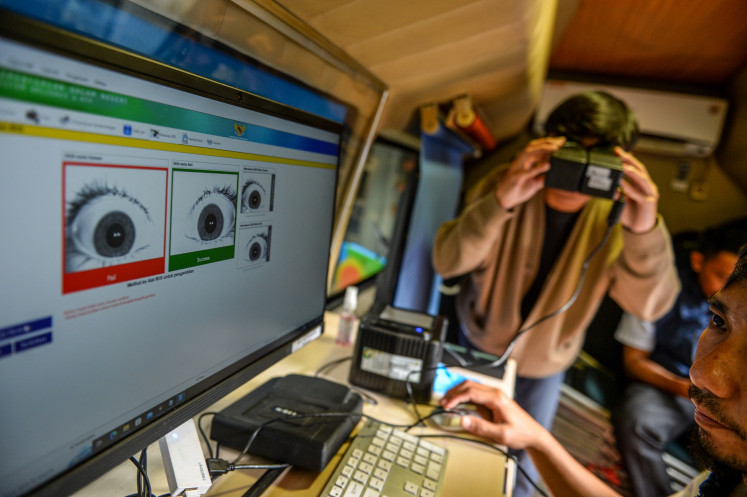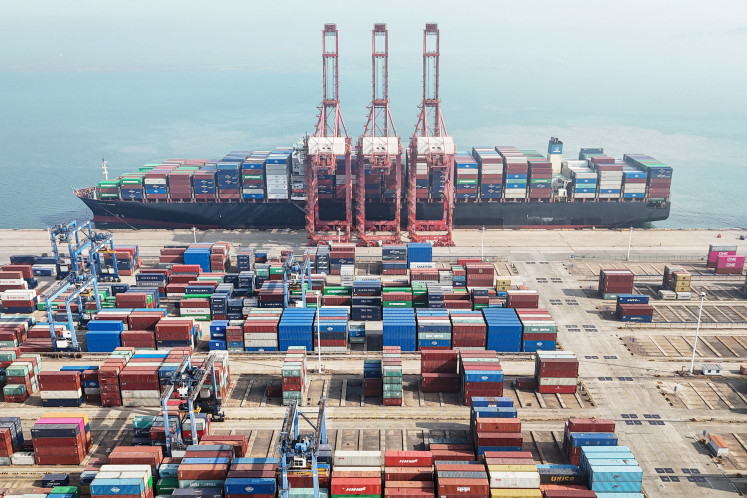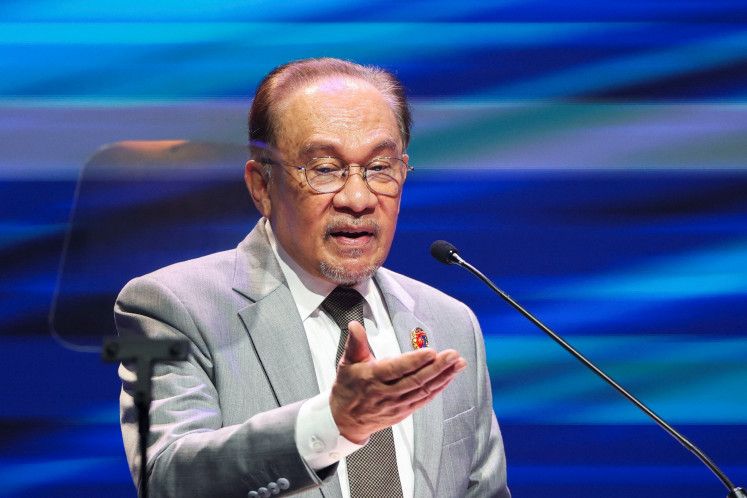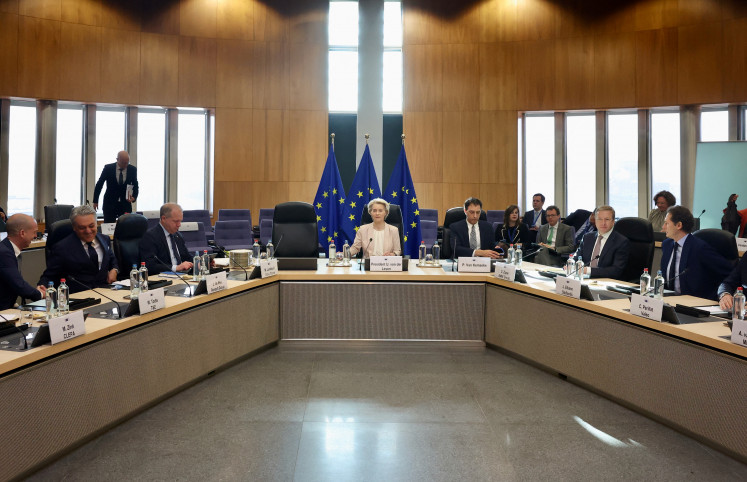Popular Reads
Top Results
Can't find what you're looking for?
View all search resultsPopular Reads
Top Results
Can't find what you're looking for?
View all search results'Malay First', Mahathir's thirst for power behind UMNO's sudden comeback
Mahathir clearly wanted to control Malaysia for a much longer period. Though he has outlived his peers as Southeast Asia’s elder statesman, he has completely lost his statesmanship.
Change text size
Gift Premium Articles
to Anyone
A
perfect combination of Mahathir Mohamad’s political ambition and the country’s “Malay First” policy was the main factor behind the comeback of the former Malaysian ruling party United Malays National Organization (UMNO) in the last few days. The Malay First factor is so sensitive that it could continue to be a divisive factor as long as people cannot find the common wisdom to overcome or minimize their differences regarding the policy.
Mahathir clearly wanted to control Malaysia for a much longer period. Though he has outlived his peers as Southeast Asia’s elder statesman, he has completely lost his statesmanship. Many may regard him as an untrustworthy great-grandpa who has repeatedly betrayed his promise in the last two years to hand over his power to his archrival Anwar Ibrahim.
Instead of leaving a memorable legacy for Malaysia’s future generations, Mahatir risks being remembered as a power-hungry, albeit very healthy looking, 94-year-old. Mahathir wrongly calculated his political strength and invited mockery when he lambasted the election of the new prime minister; he reportedly suspects the role of the king in his downfall.
Just a few weeks ago, Anwar appeared confident that he would soon realize his longtime ambition to become prime minister. He would have gained a higher position than his wife, Wan Azizah Wan Ismail, Mahathir’s deputy for almost two years. The 72-year-old politician must now bury his dream.
When Indonesia celebrated the 20th anniversary of reformasi in 2018, many Malaysians chanted the same slogan. They were determined to follow our path in ending Soeharto’s 32 years of corrupt dictatorship in May 1998. They even claimed — which was then very true — that Malaysia’s reform movement was much more peaceful than Indonesia’s. Less than two years on, however, things don’t look so peaceful just yet.
The alleged abuse of power and mega-corruption practices by the ruling coalition leaders so disgusted citizens that they granted a historic, shocking victory to the opposition parties. They had earlier ignored the important role of many non-Malays who were sidelined in the opposition.
Malay First, which automatically also means Muslims first, has been the magical slogan of UMNO, including veteran politician Muhyiddin Yassin and has eventually led him to become the country’s eighth prime minister since independence in 1958. Malays, despite their special privileges for the past 60 years, continue to be haunted by the comparative success of the Chinese and Indians.
It looks almost impossible, but Malaysians must find the courage to address the Malay First policy. Unless they are able to reach a mutual consensus it will continue to be a crucial divisive factor for the country. Ethnic Malays make up half the population while Indians and Chinese, both perceived to be relatively better off and generally more highly educated, comprise almost one third of the population. Their clout is much larger than that of the Indonesian Chinese, for instance, who are estimated to account for less than 1.5 percent of the Indonesian population.
In Indonesia it’s a common understanding that the president should be Javanese, the dominant ethnic group, and a Muslim. But Indonesia is not an Islamic state and since the late BJ Habibie was a non-Javanese, options for presidential candidates look more open.
Many Malays believe that Mahathir and his ruling coalition members were too lenient toward non-Malays since he became prime minister again in 2018. Mahathir, who had been the country’s longest-serving prime minister before his resignation in 2002, often expressed his dissatisfaction over the lack of economic progress of Malays, despite their abundant state privileges such as affirmative action in the economy and education.
UMNO and its smaller coalition members ruled the country for 60 years and suffered a humiliating defeat in the 2018 election, because Malaysians were outraged by the corruption of then-prime minister Najib Razak and his cronies. Now Najib and his wife are facing trial. As alleged by the prosecutors, his way of embezzling state funds was so blatant that his denials became endless jokes (we might note that Indonesian politicians are smarter in that regard).
According to Malaysia’s constitution, Islam is the kingdom’s official religion. Malays, who must be Muslims, are first-class citizens, while other ethnic groups including Chinese and Indians, are expected to adjust themselves to race-based politics and privileges.
Malaysia, which eventually followed its neighbor Indonesia’s path toward democracy 20 years later, was very confident that its political reform would be much smoother than Indonesia’s. But the fall of Mahathir shows Malaysia has to confront very tough political challenges regarding the Malay First policy.
Will the Chinese and Indians continue to accept the fact that in daily life their position is not equal to that of their Malay compatriots?
It is unlikely, and if so, the issue will continue to haunt their nation, regardless of who the nation’s prime minister is.

